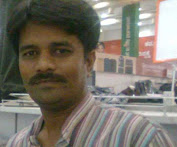On 7th of May we conducted a RTI rally at Dharwad District's 5 villages. We went to Medikoppa, Ramapura, Siddapura, Veerapur and Kallapura To gave awareness on the Act. Early morning we visited the village and discussed with villagers about the rally. They agreed to support and they took initiative in all our program. First we did a street play on RTI Act 2005. In our group we were 15 fellows, each of us took initiative to get success in this activity. IN Kallapur village villagers were prepared food for all fellows.
Through this I learned that, we should prepare before conducting any activity. Without preparation we cannot get success in any activity.
At the end of the Rally we Filed 125 RTI cases in different government Offices.It gave me courage to conduct these type of Rally and activities.
While learning the RTI module Ajay taught us about advantages and disadvantages of RTI act,Through this we can seek information of any government office,project, officer and any organization which took help from government.
Through this I learned that, we should prepare before conducting any activity. Without preparation we cannot get success in any activity.
At the end of the Rally we Filed 125 RTI cases in different government Offices.It gave me courage to conduct these type of Rally and activities.
While learning the RTI module Ajay taught us about advantages and disadvantages of RTI act,Through this we can seek information of any government office,project, officer and any organization which took help from government.

